PRODUCTION
The Romanian National Film Centre awarded grants for 16 features and seven debut features at its only grant session in 2013, with the results announced in April 2014. CNC also allotted grants for eight features and seven debut features at the first grant session of 2014 with the results announced in October 2014.
There were 25 features produced in Romania in 2013 of which 18 received the support of the CNC. There were 16 film which were 100 percent nationally financed and nine international coproductions. 19 features were produced in 2012, 14 with the support of the CNC, nine fully nationally-financed films and 10 international coproductions.
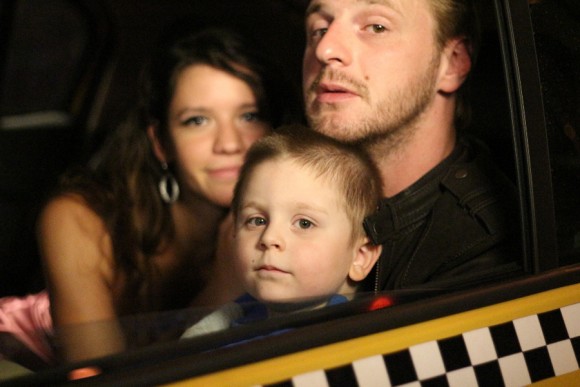 There were 11 features produced in Romania in 2011, all of them supported by the CNC, and 19 in 2010, with 18 of them supported by the CNC. There were 10 coproductions produced in 2012 and 2010, and only three in 2011.
There were 11 features produced in Romania in 2011, all of them supported by the CNC, and 19 in 2010, with 18 of them supported by the CNC. There were 10 coproductions produced in 2012 and 2010, and only three in 2011.
Five long documentaries were produced in Romania in 2013, all of them supported by the CNC, one international coproduction and four 100% nationally-financed.
Seven long documentaries were produced in Romania in 2012, six of them supported by the CNC, compared to four in 2011, all of them supported by the CNC and 10 in 2010 with eight supported by the CNC.
In 2013 production slowed down. “It is worse than ever. Since there was no grant session from summer 2011 till December 2012 (with the results announced in April 2013), production was blocked in 2013. I didn’t produce anything this year except for an independent documentary,” Ada Solomon, producer of the 2013 Berlinale winner Child’s Pose, told FNE in 2013.
In 2014 the situation slightly improved. More than 12 features were shot, nine of which were supported by the CNC: Radu Jude’s Aferim! (HiFilm Production), Radu Muntean’s One Floor Below/ Un etaj mai jos (Multimedia Est), Cătălin Mitulescu’s Rumeno (Strada Film) and Corneliu Porumboiu’s, The Treasure/Comoara (42Km Film).
The independent sector continued to grow slowly. Rejected at the CNC, Adrian Sitaru shot his feature It’s Time/La timp (4Proof Film) independently in late autumn 2014. Iulia Rugină’s independent debut feature Love Building (ActorieDeFilm.ro) set a surprising opening record for an independent film in September 2013 with 12,200 admissions. In winter 2013/2014, Rugină received support from the CNC and shot the sequel Another Love Building, which was set for release in December 2014.
The number of foreign productions shot in Romania has been on the decline in 2014. At least eight foreign productions were shot in Romania in 2014 including the miniseries Vlad The Impaler: Blood Empire with Castel Film providing facilities, Jasmin Dizdar’s independent American production Chosen at the MediaPro Studios and a Bollywood project produced by Indian cult producer and director J. P. Dutta and directed by Binoy Gandhi with Family Film providing services.
DISTRIBUTION
In 2013, a total of 192 films premiered including 22 domestic releases and 51 European releases.Cinemagia reports that 166 titles were theatrically released through the end of November 2014 including 16 domestic releases and 44 European releases.
The leading distributors in 2014 were Ro Image 2000, MediaPro Distribution, Forum Film Romania, InterComFilm and Independenţa Film.
Two new distributors appeared in 2014, Freeman Distribution and Freealize. Freeman Distribution took over the exclusive license of Warner Bros in Romania in Autumn 2014 and has also become the official distributor of Lionsgate/Summit in Romania, Hungary, Bulgaria, Czech Republic and Slovakia. Freealize is distributing independent European and domestic titles.
There are 19 Romanian distributors, with 10 of them distributing European and Romanian films on a regular basis. The leading distributor for European films is Independenţa Film. There is no single large distributor for Romanian films, but several distributors do release domestic films, including Independenţa Film, Transilvania Film, InterComFilm, Metropolis Film, Parada Film, Freealize and Voodoo Films.
Famous directors have begun opening their own production and distribution companies. These include Cristian Mungiu’s production company Mobra Films and distribution company Voodoo Films; Tudor Giurgiu’s production company Libra Film and distribution company Transilvania Film; and Cătălin and Daniel Mitulescu’s production company Strada Film and distribution company Metropolis Film.
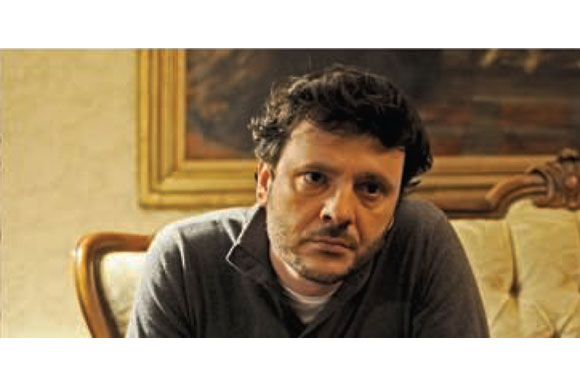 Day-and-date release is in the early stages in Romania. Films still follow the sequence of theatrical-dvd-internet release. Some internet platforms show domestic films after their theatrical release in cinemas, such as www.voyo.ro, which is part of MediaPro offering films and TV programmes for subscribers and also on a pay-per-view system, and Worldwide Television providing video-on-demand. Another platform, http://www.webkino.ro/, was launched with Bogdan George Apetri’s domestic debut feature Periferic in 2011. The film was shown online simultaneously for audiences living in cities with no cinemas, but not all the local films that opened since have appeared on webkino’s portfolio.
Day-and-date release is in the early stages in Romania. Films still follow the sequence of theatrical-dvd-internet release. Some internet platforms show domestic films after their theatrical release in cinemas, such as www.voyo.ro, which is part of MediaPro offering films and TV programmes for subscribers and also on a pay-per-view system, and Worldwide Television providing video-on-demand. Another platform, http://www.webkino.ro/, was launched with Bogdan George Apetri’s domestic debut feature Periferic in 2011. The film was shown online simultaneously for audiences living in cities with no cinemas, but not all the local films that opened since have appeared on webkino’s portfolio.
International sales reached a high point in 2013 with Călin Peter Netzer’s Child’s Pose/Poziţiacopilului produced by Parada Film and winner of the Golden Bear at the Berlinale, but no domestic film competed with it in 2014. The Japanese Dog/Câinele japonez, the Romanian contender at the Oscar for Foreign Language film, opened domestically in October 2013 and was sold by m-appeal to Turkey and Macedonia, and was invited to more than 30 festivals in 2014.
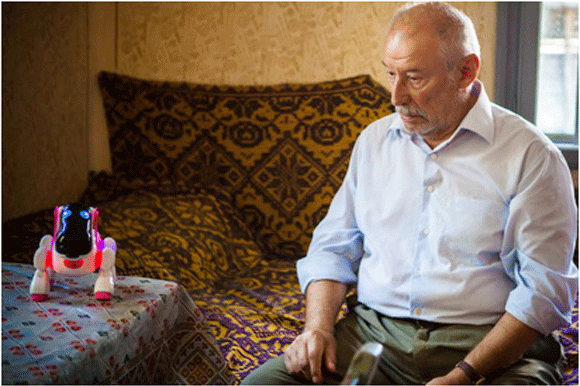 EXHIBITION AND BOX OFFICE
EXHIBITION AND BOX OFFICE
There were 281 screens in 2014, an increase compared to the 264 screens in 2013, 163 of which were digital, with most of them were operated by Cinema City. RADEF RomaniaFilm, which inherited the former pre-1990 state cinema network, operated 30 screens in 21 towns at the end of 2013 but has digitalised only four of its screens.
Other multiplexes built after 1990 were digitalised from the very beginning such as Light Cinema which opened in 2008, or were digitalised gradually such as Movieplex Bucureşti whose last two screens were digitalised in mid-2013. Digitalisation is supported by the operator, the reason why RADEF RomaniaFilm has not been able to digitalise more screens.
Print distribution in 35mm is fastcoming to an end. In June 2013 Andrea Comănici, the manager of InterComFilm, told FNE that she was planning to distribute prints for one more year, but she stopped a few months later. Independenţa Film stopped using prints in late 2012.
Box office in 2014 is unlikely to reach the results of 2013. Box office was 36,482,532 EUR in 2013 (compared to 32,907,684 EUR in 2012, according to CNC), and 35,543,926 EUR through the end of November 2014, according to Cinemagia. Admissions were 8,348,538 in 2012, 9,048,257 in 2013, according to the CNC, and 8,427,303 through the end of November 2014, according to Cinemagia. Admissions and box office grew in the last four years especially due to the boost of the multiplexes. Average admissions per person grew from 0.38% in 2011 to 0.46% in 2013.
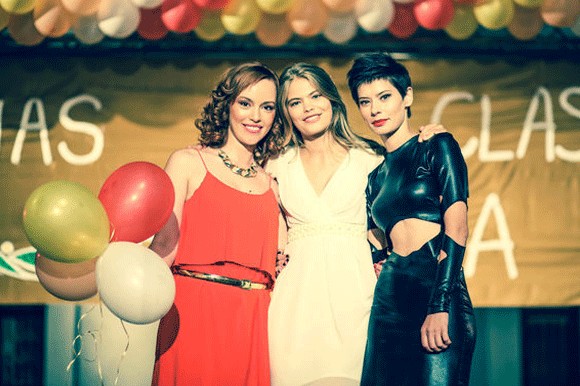 Romanian films saw better domestic results in 2012 compared to 2011, with four films topping 20,000 admissions out of the 20 Romanian films which premiered in 2012. In 2013 Călin Peter Netzer’s Child’s Pose set a new record becoming the most successful Romanian film in the last 11 years for admissions -- 118,392 -- and box office of 284,575 EUR making it the most successful local film in the last 20 years at the box office. In 2014 the domestic hit #Selfie (Zazu Film) sold 101,726 tickets with box office of 260,451 EUR.
Romanian films saw better domestic results in 2012 compared to 2011, with four films topping 20,000 admissions out of the 20 Romanian films which premiered in 2012. In 2013 Călin Peter Netzer’s Child’s Pose set a new record becoming the most successful Romanian film in the last 11 years for admissions -- 118,392 -- and box office of 284,575 EUR making it the most successful local film in the last 20 years at the box office. In 2014 the domestic hit #Selfie (Zazu Film) sold 101,726 tickets with box office of 260,451 EUR.
RăzvanSăvescu’s debut feature America, Here We Come!/America,venim! racked up 14,257 admissions in the first weekend, more than #Selfie, but it didn’t break the all-time opening record set by Child’s Pose in 2013. It made 29,594 EUR gross, less than #Selfie, which cashed in at 47,184EUR in the first weekend.
The international hits through the end of November 2014 were 300: Rise of an Empire (MediaPro Distribution) with 274,444 admissions, The Wolf of Wall Street (MediaPro Distribution) with 294,902 admissions, Interstellar (Freeman Entertainment) with 239,747 admissions, Noah (Ro Image 2000) with 225,306 admissions, Lucy (Ro Image 2000) with 222,863 admissions, Dracula Untold (Ro Image 2000) with 206,794 admissions, Guardians of the Galaxy (Forum Film Romania) with 185,776 admissions, Maleficent (Forum Film Romania) with 180,637 admissions, Pompeii (MediaPro Distribution) with 178,602 admissions and Transformers: Age of Extinction (RoImage 2000) with 168,666 admissions.
The top domestic films in 2014 were: Cristina Iacob’s feature debut #Selfie (ZAZU Film) with 101,726 admissions, Răzvan Săvescu’s America, Here We Come!/America,venim! (Transilvania Film) with 28,081 admissions, Radu Potcoavă’s The Fathers-in-Law/Cuscrii (InterCom Film) with 23,305 admissions and Nae Caranfil’s Closer to the Moon (Mandragora Movies) with 20,135 admissions.
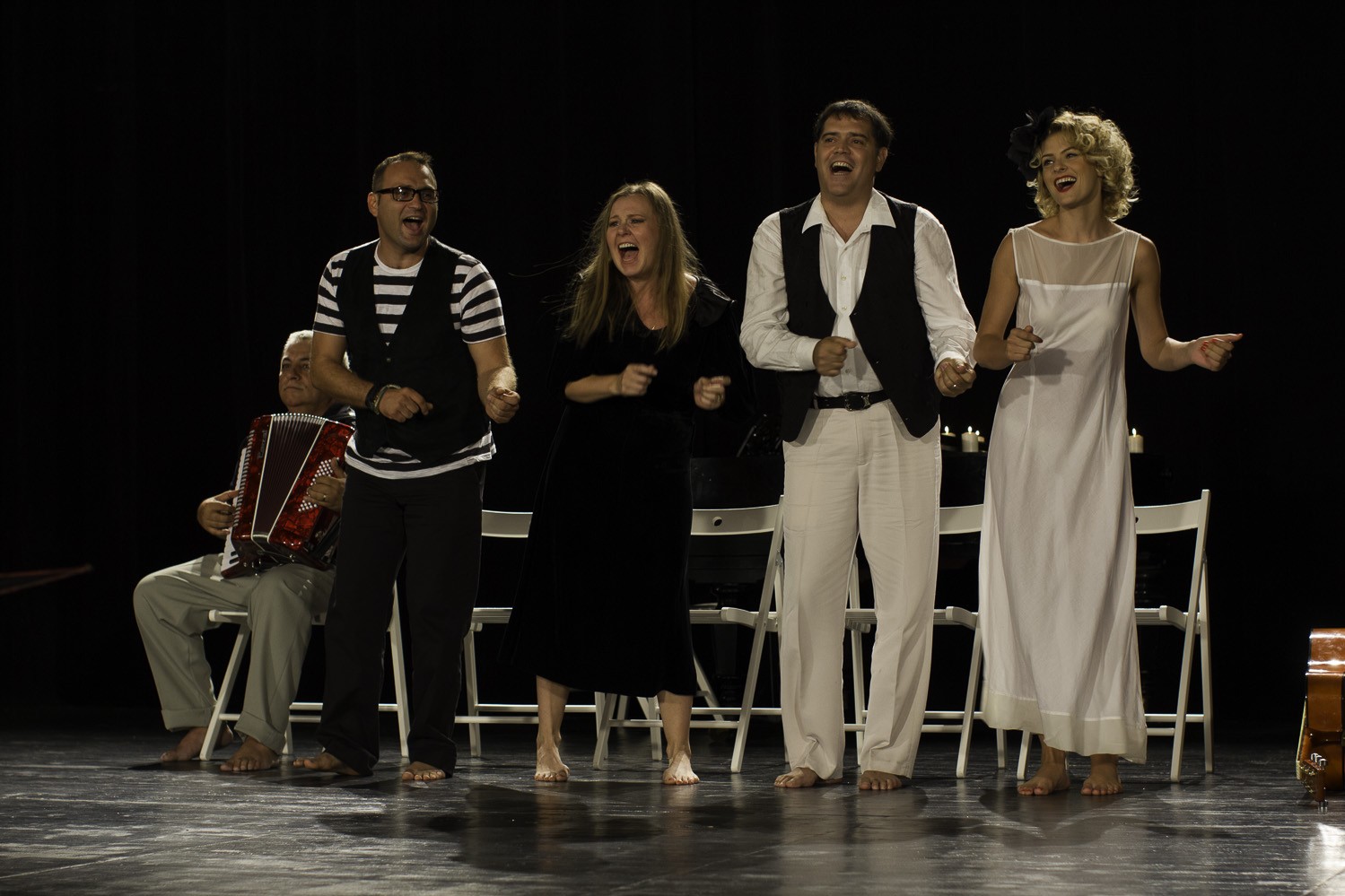 The Top 3 European productions released in 2014 were The Grand Budapest Hotel (Odeon Cineplex) with 49,992 admissions, Nymphomaniac: Volume 1 (Independenţa Film) with 33,023 admissions and Serena (Ro Image 2000) with 22,546 admissions.
The Top 3 European productions released in 2014 were The Grand Budapest Hotel (Odeon Cineplex) with 49,992 admissions, Nymphomaniac: Volume 1 (Independenţa Film) with 33,023 admissions and Serena (Ro Image 2000) with 22,546 admissions.
Major distributors on DVD, CD, VHS, UMD and BD are Pro Video, Empire Film and Odeon Cineplex.
FILM INSTITUTIONS
The most important film body is the National Film Center (CNC) operating under the umbrella of the Ministry of Culture. The CNC has to organise two grant sessions per year in order to allot production and development grants for film projects. The total incomes at the Film Fund grew from 8.8m EUR/ 39m RON in 2012 to 9.1m EUR/40m RON in 2013. All these funds are collected from other sources than the budgetary support.
There was only one grant session contest in 2012 and one grant session in 2013 with the results announced in April 2014. The results of the first grant session in 2014 were announced in October 2014 and the second grant session opened beginning of December 2014. A total of 7,307,154 EUR was allotted for production and development in April 2014 for 2013 and 3,401,250 EUR was allotted in October 2014 for the first session in 2014.
Mihail Ioan Kogălniceanu was nominated acting director at the CNC in May 2013 replacing Eugen Şerbănescu. Anca Mitran (the head of the Film Archives) replaced him as acting director in autumn 2014.
The activity of the CNC was affected by the unstable political climate which led to the frequent change of the minister of Culture throughout the year. Three ministers of Culture came and went: Gigel Ştirbu, Hunor Kelemen and Csilla Hegedus, and even the prime-minister Victor Ponta was acting minister of Culture in autumn 2014.
The National Film Institute was founded in June 2013, restructuring the Ministry of Culture‘s budget by merging Romania’s National Film Archives, Studiul de Creaţie Cinematografică and Video Art Studio (the former Editura Video), the last two operating under the umbrella of the ministry. Laurenţiu Damian, the president of UCIN and the initiator of the National Film Institute, told FNE: “The institute would also take over the financing of CNC, and CNC would become a bank with a much smaller staff. Obviously, CNC doesn't want that.” The directive on how the organization would operate has been under public debate but no decision has been taken throughout 2014.
There is no tax incentives scheme yet.
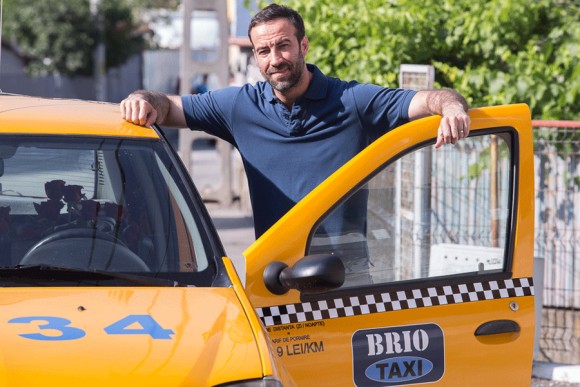 TV
TV
In 2014 MediaPro Pictures produced the sixth season of the successful comedy series Las Fierbinţi and the second season of the series A Crazy Week/O săptămână nebună for Pro TV.
Shadows/Umbre, an eight-part, 45minute black comedy directed by Igor Cobileanski and Bogdan Mirică was shot from June to August 2014 at HBO Romania. The third original series produced by HBO Europe in Romania after In Treatment/In derivă and When Shall We Kiss/Rămâi cu mine, was scheduled to premiere at the end of 2014. HBO Romania also aired three original long documentaries, the awarded Toto and His Sisters/Toto şi surorile lui by Alexander Nanau, The Birdman/Omul-Pasăre by Alexandru Mavrodineanu and Mihai Grecea, and Trading Germans/Paşaport de Germania by Răzvan Georgescu.
The public television broadcaster TVR continued to be in critical condition in 2014 and had to pay to the IRS (ANAF) approximately 9m EUR yearly, according to Adrian Bucur, member of the Administration Council of TVR. TVR has debts primarily in Romania.
CONTACTS:
NATIONAL FILM CENTRE
4-6, Dem. I. Dobrescu street, sector 1, Bucharest
Phone: +40 213 104 301
Fax: + 40 213 104 300
www.cnc.gov.ro
THE MINISTRY OF CULTURE AND NATIONAL HERITAGE
22, BulevardulUnirii, sector 3, Bucharest
Press office: +40 212 243 947
www.cultura.ro
This email address is being protected from spambots. You need JavaScript enabled to view it.
FILMMAKERS’S UNION (UCIN)
28-30 Mendeleev, sector 1, Bucharest
Phone: +40 213 168 0 83, +40 213 168 0 84
Fax: + 40 213 111 246
www.ucin.ro
This email address is being protected from spambots. You need JavaScript enabled to view it.
ROMANIAN FILM PROMOTION
52 PopaSoare street, sector 2, Bucharest
Phone: + 40 213 266 480
Fax: + 40 213 260 268
www.romfilmpromotion.ro
This email address is being protected from spambots. You need JavaScript enabled to view it.
ROMANIAN CULTURAL INSTITUTE
38 AleeaAlexandru
Sector 1, 011824
Bucharest, Romania
Phone: (+4) 031 71 00 627, (+4) 031 71 00 606
Fax: (+4) 031 71 00 607
www.icr.ro
This email address is being protected from spambots. You need JavaScript enabled to view it.
MEDIADESK ROMANIA
57 BarbuDelavrancea street, et. 1, sector 1, Bucharest
Phone/Fax: +40 213 166 060, +40 213 166 061
www.media-romania.eu
This email address is being protected from spambots. You need JavaScript enabled to view it.
Report by Iulia Blaga
Sources: The National Film Center - CNC, cinemagia.ro, HBO




















